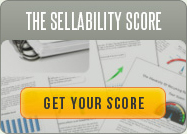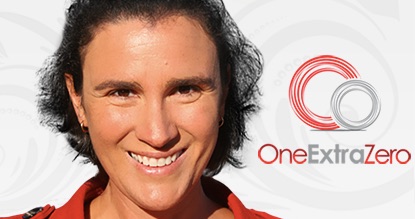
So, you’ve completed the #SellabilityScore questionnaire, now what?
If you want to take the questionnaire, to determine your Score and get the process started then please do, with my compliments.

If you want to take the questionnaire, to determine your Score and get the process started then please do, with my compliments.
When starting up a new business, the name may take a backseat at first as you find investors, refine a product, and research your target demographic. However, a standout name can make all of these tasks more effective. Furthermore, if you plan to sell your business down the road you need a name that will be transferable to another owner. A business’s name is integral to its value as a brand. Always keep the end goal of selling your business in mind as you launch a start-up, and avoid the most common naming pitfalls.
Image Source: Pixabay
Why Names Matter
So just how big of a deal is your new business name? Basically, your chances of getting your business off the ground and then selling it depend on a good one. The name is your brand, encapsulated in a single word or phrase. A bad name will automatically make customers dismiss your business, even if you have a worthwhile product. From a practical standpoint, the name will drive your business’s chances of being discovered online, through Google searches and social media channels. If you choose the wrong name, you could be left in online obscurity which will make it difficult to find customers and buyers.
Pitfall #1: Choosing a name that’s too generic
A good name will set you apart from the competition and be something memorable. If you’re starting an online sporting goods store, “The Ball Shop” is probably not going to make you stand out. Try to find a name that’s more specific to your niche, that’s not too long, and that isn’t overly similar to your competitors.
Pitfall #2: Choosing a name that’s too obscure
It’s possible to go too far in the other direction and choose a name that’s overly obscure in a bid to avoid being bland and generic. If you choose a name that’s hard to remember, pronounce, or spell, you’ll make it too hard for customers to connect with your brand. When the time comes to sell your business, investors won’t be interested in a name that lacks mass-market appeal.
Image Source: Pixabay
Pitfall #3: Using your personal name
If you’re a freelancer, it might make sense to use your personal name as your business title. This makes you recognizable to clients and puts a personality behind the brand, after all. However, the downside of this is that again, it makes it more difficult to sell a small business to someone else if it bears your name.
Pitfall #4: Choosing an unavailable domain name
Start-up entrepreneurs now not only have to think about clients and investors when choosing a name, they also have to think about online marketing. It’s unwise to launch a start-up without an accompanying website. As you choose your business name, make sure that the domain is available.
The Bottom Line
There are numerous factors to think about as you choose a name to work towards your ultimate goals. You’ll need to think about the big picture of starting up a business, from beginning to the eventual end game. Does your name appeal to new customers? Will it be easy to find online? Is there a matching domain name available? Finally, will it create a brand that’s easy to sell? If the answer to all of these questions is yes, you may just have a winner.

AbbieWidin_oneextrazero.com
Late in 2014, I had the pleasure of chatting to Abbie Widin of oneextrazero.com about why it’s important to not only develop an exit strategy for your business, but to also treat it as an Asset as opposed to a job replacement, resulting in viewing it through a completely different lens.
The interview with Abbie started off like so:
I’ve been increasingly aware that so many women business owners have been busy building themselves jobs and not saleable assets. That might be fine for some, but many more don’t want to be the last to turn the lights out on their businesses.
What’s your plan to exit your business?
I decided to reach out to Denise Hall, exit strategist and the entrepreneurial mother ®…
Read the full interview here…

Recently, this really good article, “5 Questions to ask when Choosing a Business Broker“, got me thinking… can I answer the questions to your satisfaction? So I’ve given it a go. If my responses raise further questions for you, then please ask…
Finding the Right Business Broker
After you have decided to sell your company, it’s helpful to meet with multiple brokers to identify the one that is the best match for your unique needs and sale objectives. You have spent years building your business. You owe it to yourself to interview a number of candidates. As you go through this process, keep the following questions in mind when comparing brokers:
1. What are the broker’s background and credentials?
I have a track record in selling businesses, especially of the Online and Professional Services kind.
Not only have I done so for myself, but also for a growing number of clients over the last years.
I am also qualified and credentialed, e.g.:
CAR(REIV) = Certified Agents Representative with the Real Estate Institute of Victoria
AMAIBB = Associate Member of the Australian Institute of Business Brokers
MREIV = Member of the Real Estate Institute of Victoria (Business Brokers chapter)
MIMC = Member of the Institute of Management Consultants
BTD = Bachelor of Training and Development
2. Is the broker genuinely interested in learning about your business?
Allow me to introduce The Business Discovery Process…
As you’re no doubt aware, the sale of a business can be a complex and sensitive a process. So to get the best outcome for my clients, I prefer all parties to invest some time upfront before making any formal decision. At that point, I introduce the “Business Discovery” process, which allows both sides to gather sufficient information about each other before proceeding to any formal commitment.
3. How will the broker promote your sale?
As experts in selling businesses, the professional team that I am apart of and our experience have enabled us to deliver results for our clients over many years.
Our proactive approach is to have the appropriate marketing strategies in place to reach potential buyers of your business. As a result, we tailor our marketing strategy to deliver the optimum outcome.
The upside for you is that you do not have to spend a fortune to find a purchaser.
The beauty of being part of a well-respected and long-established trusted adviser in the community, is that they are also very well-connected with good relationships with accountants, lawyers, bankers and other small business professionals. Together with having an enviously large contact list, I am able to tap into markets and opportunities that many are not.
4. What process will the broker use to screen prospects?
I handle all initial inquiries, where tyre-kickers are immediately outed.
Once they get past first base, the next step is for them to sign and return a NDA/CA (confidentiality Agreement).
Once received, they in turn receive a preliminary Business Profile.
Then if still interested, it’s time to meet you, the owner.
5. How many listings is the broker currently managing?
At any given time, I am handling between 6-10 businesses and their owners.
This allows me to concentrate on the negotiations at hand, to ideally bring them to the outcome that all parties desire.
I trust that has addressed any questions you may have had, but if not, please email through whatever you want to know, to info@theentrepreneurialmother.com.au